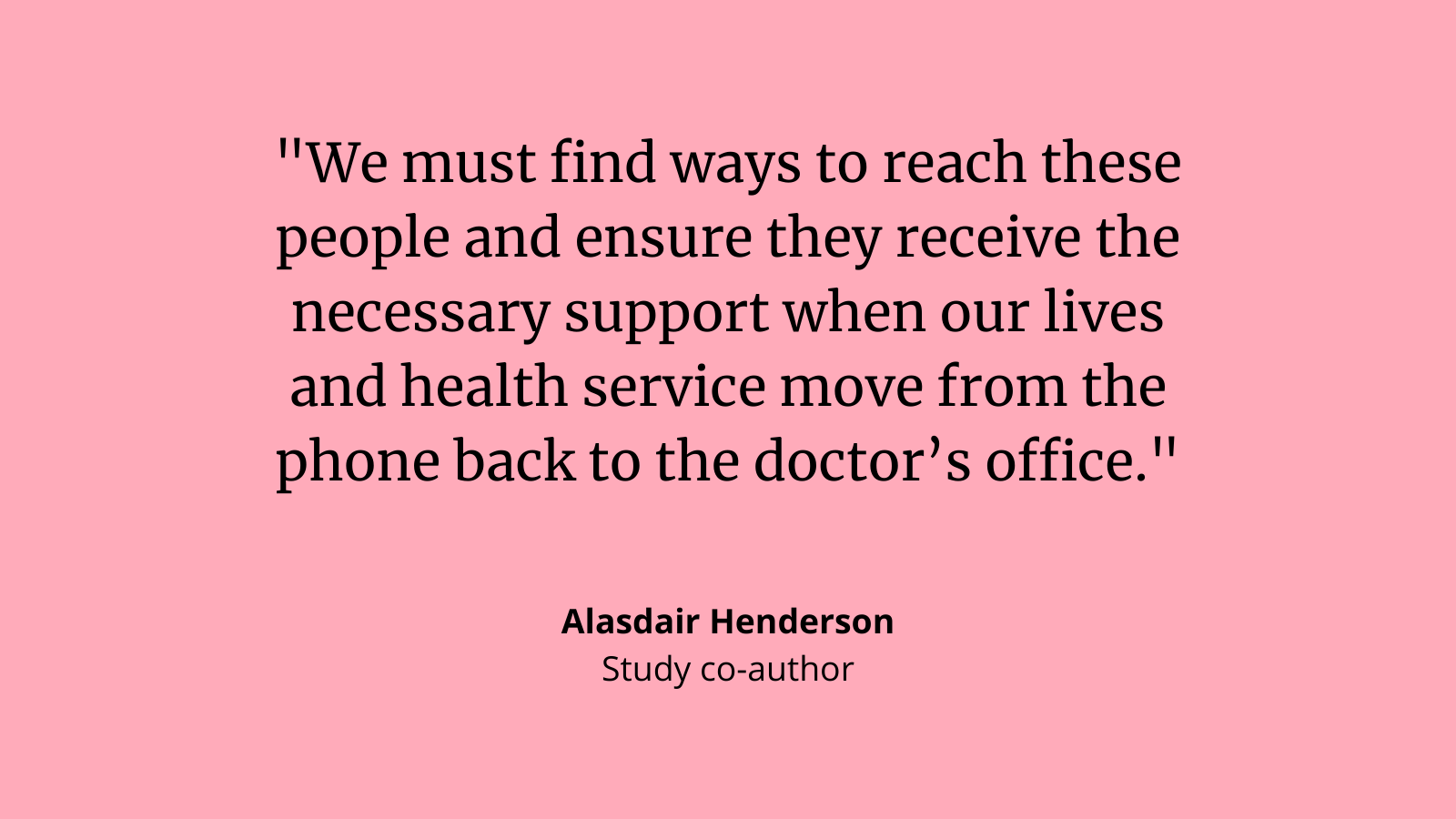Indirect effects of the pandemic on UK health
London School of Hygiene & Tropical Medicine https://lshtm.ac.uk/themes/custom/lshtm/images/lshtm-logo-black.png Friday 19 February 2021
The remarkable transition general practitioners have made to predominantly remote and telephone consultations is to be applauded. Yet this has brought its own challenges which may have meant that less serious health conditions have gone untreated.
Many patients will have had understandable fears about the risk of infection or burdening the health service. Others may lack the digital access or skills to join a remote appointment.
So has the pandemic, and resulting barriers to obtaining care, reduced consultations for acute medical conditions? This hypothesis was the catalyst for new research which used anonymised routinely collected electronic health records from general practices to find out what these changes meant for patients.
Now published in the journal Lancet Digital Health, the results are striking.
An analysis of 10 million people during the first national lockdown, between March and July 2020. saw a rapid reduction in GP contacts compared with the three previous years.
To take one example, people with diabetes are at risk of potentially life-threatening diabetic emergencies. Thankfully this is rare – in April 2019 only 6 in every 100,000 people with diabetes in our study contacted their GP for a diabetic emergency. Yet in April 2020 this was only 1 in every 100,000. Why did this happen? Did these people with very serious illness bypass their GPs and go straight to Emergency departments or was there a genuine reduction in these events?
Despite a wealth of evidence that mental health worsened during the first lockdown, GP contacts for anxiety, depression, obsessive compulsive disorder, self-harm and eating disorders fell dramatically. What is not clear is whether these people were self-managing mental health issues and what the long-term consequences are.
Of course, the rapid reduction in GP contacts we saw after the March 2020 lockdown could be due to genuine improvement in some health conditions at this time. For example, more regular routines may have helped people with diabetes manage their blood sugars. People with lung diseases may have had have fewer exacerbations because air pollution was less during lockdown while those shielding were less likely to be exposed to respiratory infections.
However, it is likely that some of the reduction in GP contacts represents a troubling level of unmet need for healthcare. Did some people try to manage potentially serious illnesses at home? Did some become too sick to see their GP, going directly to hospital or dying before they ever saw a doctor? Sadly, increases in non-COVID excess deaths and reports of reduced hospital attendance suggest that some of these people may have died, suggesting that our findings might partly reflect unmet need.
There is hope in the recovery of GP contacts by Autumn 2020 and there is political commitment to make this third national lockdown the last. However, the collateral effects of the pandemic are likely to be felt for years to come.
Work needs to be done to find those with heart, lung or mental health issues who were missed. As we build back better, we need stronger consideration of the ramifications of this potentially unmet need.
We must find ways to reach these people and ensure they receive the necessary support when our lives and health service move from the phone back to the doctor’s office.
Publication
K E Mansfield et al. Indirect acute effects of the COVID-19 pandemic on physical and mental health in the UK: a population-based study. The Lancet Digital Health. DOI: 10.1016/ S2589-7500(21)00017-0
Our postgraduate taught courses provide health practitioners, clinicians, policy-makers, scientists and recent graduates with a world-class qualification in public and global health.
If you are coming to LSHTM to study a distance learning programme (PG Cert, PG Dip, MSc or individual modules) starting in 2024, you may be eligible for a 5% discount on your tuition fees.
These fee reduction schemes are available for a limited time only.